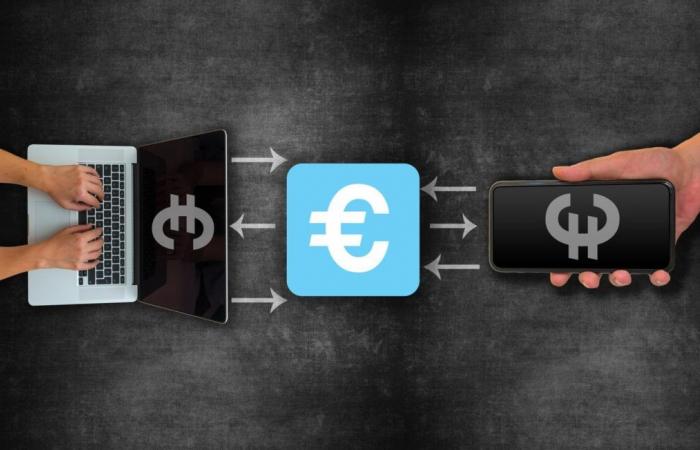It’s a small revolution that is at work in the banking sector at the start of the year! While the majority of establishments have until now charged for issuing an instant bank transfer, this transaction has in fact become free of charge. Decryption.
An innovative solution
In the European Union, the classic deadline for a Sepa transfer in euros – the format harmonized in all Member States – is one working day (read one working day) between two different banking establishments. If the operation falls on a weekend, it can therefore sometimes take up to three calendar days. A period of time that is sometimes very restrictive when the transaction is urgent. Even more, a certain uncertainty may reign between a seller and a buyer until the actual receipt of funds has been achieved…
In order to make life easier for users, banks have therefore implemented an instant transfer or “instant payment” for occasional transactions since the end of 2018. In this case, funds are made available in less than 10 seconds, and this, at any time via a service available continuously, 7 days a week and 24 hours a day. Thanks to this immediacy, the payer thus has immediate proof of payment, while the beneficiary has the guarantee of directly receiving his regulation. Enough to bring fluidity and security to both parties.
Accelerate the development of the system
Downside: six years after its launch, the instant SEPA transfer is still not democratized since it represented barely 6.4% of the total number of transfers made in 2023 according to a November publication from the Banque de France. The reason for this is that until now this optional service was most often paid for!
The annual report of the Banking Tariff Observatory published in December and relating to the tariff plates in force as of April 5, 2024 is eloquent. Of the 100 establishments studied, 96 allowed instant transfers, including 14 free of charge. On the other hand, 50 banks charged a fixed price ranging between €0.21 and €1.10, while 31 brands offered a differentiated price depending on the amount transferred. Compared to a traditional transfer, certainly takes longer to arrive but still free when made via the internet, the choice was therefore quickly made!
A legal obligation
To accelerate the generalization of “instant payment”, the European Union moved up a gear by adopting on March 13, 2024 a new regulation relating to instant transfers, the measures of which apply on January 9, 2025. From then on, all banks must not only allow their customers to receive instant transfers (which was already the case in almost all establishments) but above all, they no longer have the right to apply additional fees compared to the transfer classic. And as the latter is free in France, its immediate alternative therefore also becomes free.
Please note, however, that it is only from October 9, 2025 that all banking establishments will also be required to offer their customers a service for issuing instant transfers. If your bank is one of the very rare brands that has not yet passed the milestone, you will have to wait a few more months.
Enhanced security
While the immediacy of an instant transfer has several advantages, it requires increased vigilance since the transfer of funds is immediate and irreversible, unlike a traditional transfer which can sometimes be canceled. However, the European Union has allowed you to transfer up to €100,000 instantly since 2020, provided that your bank does not apply a lower ceiling.
To secure this transaction, the European regulation therefore provides that banking establishments carry out verification of customer databases with regard to European sanctions lists from January 9, 2025. But it is above all on October 9, 2025 that security will be reinforced with “the obligation to provide a data reliability service to initiate the payment, including the service of verifying the concordance between the name of the recipient and that of the holder of the beneficiary IBAN, including for traditional transfers “.






